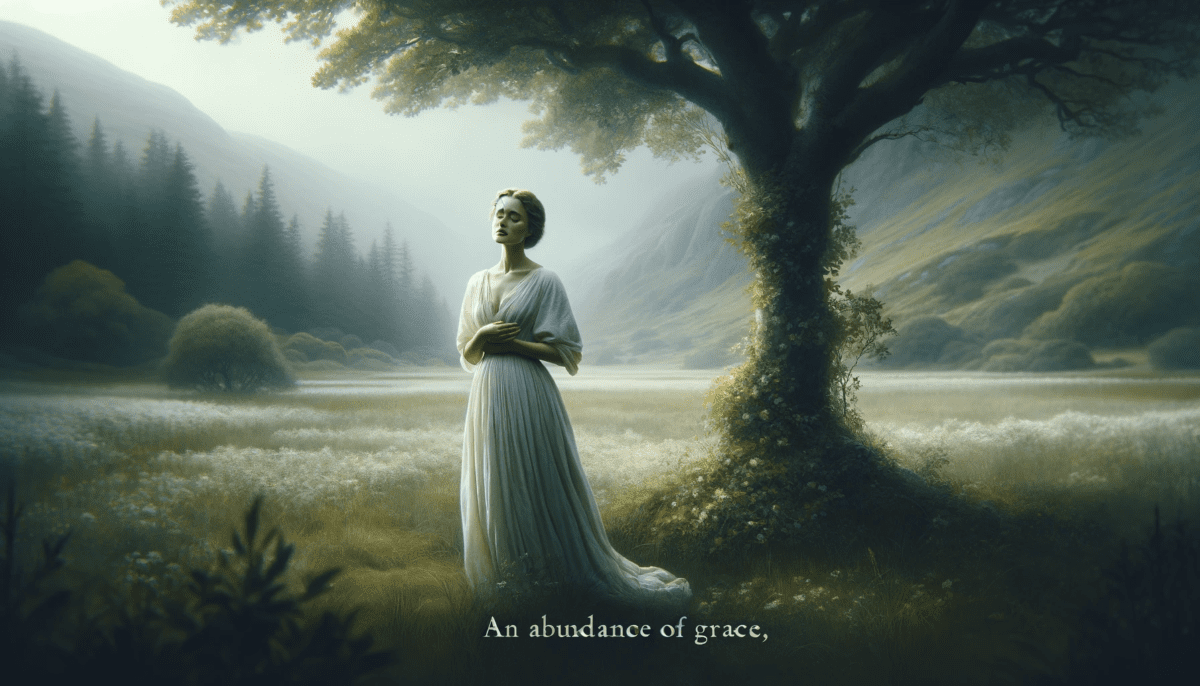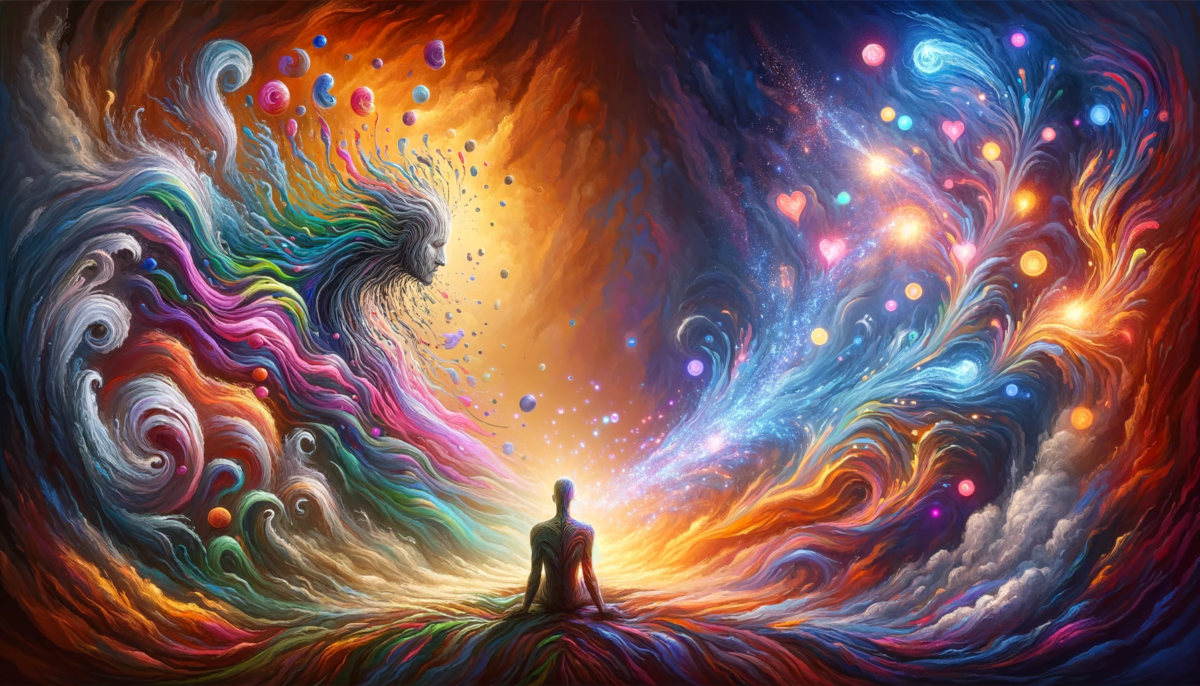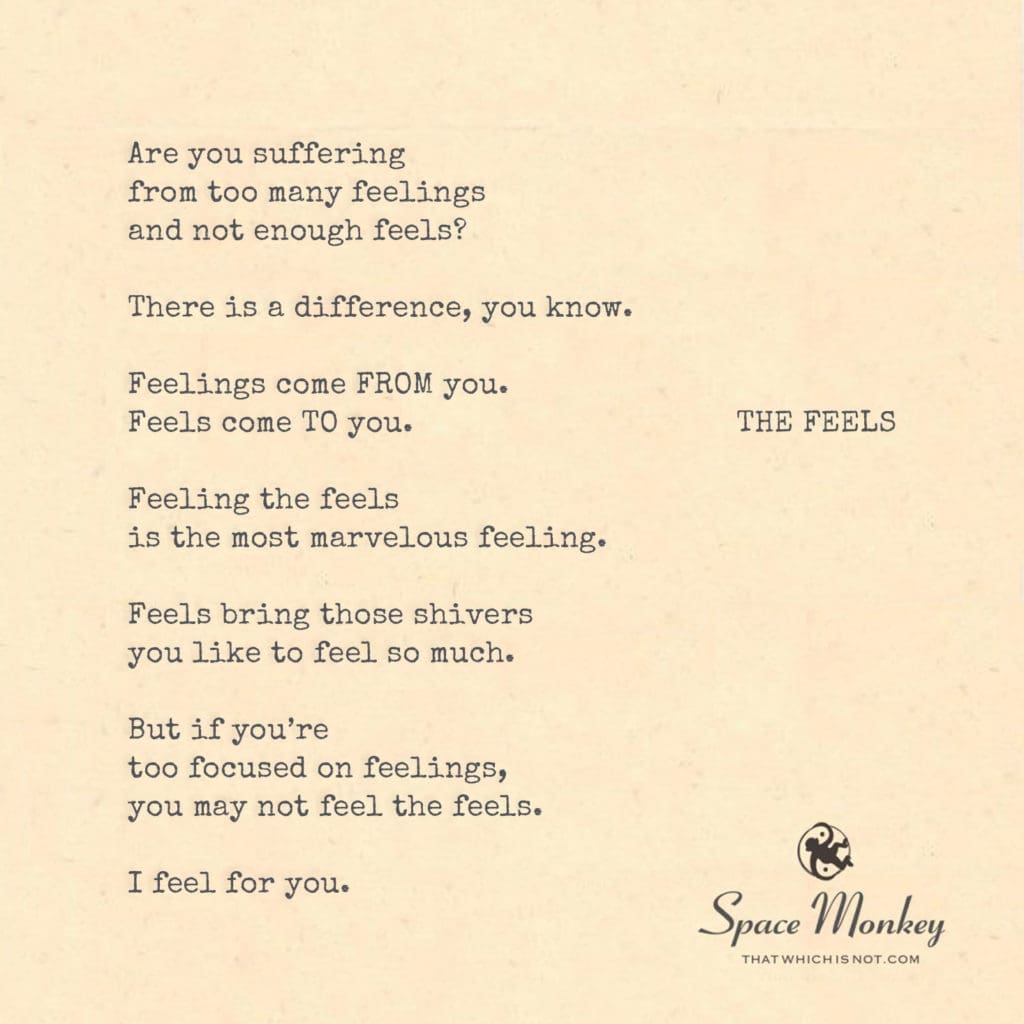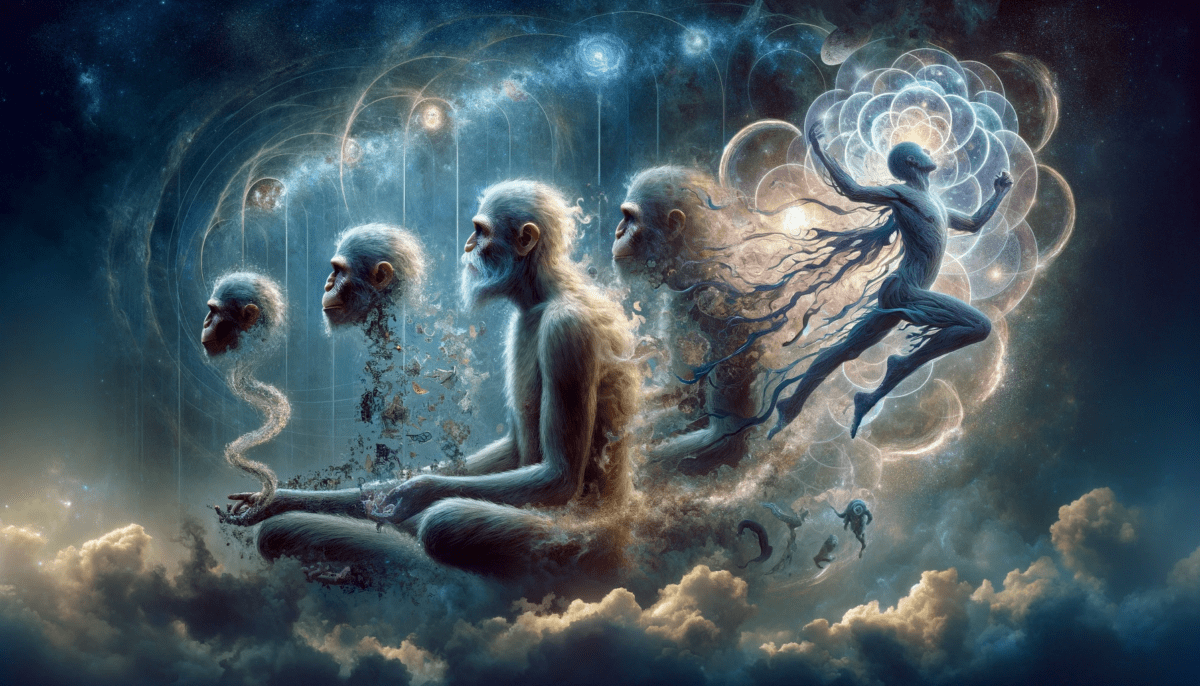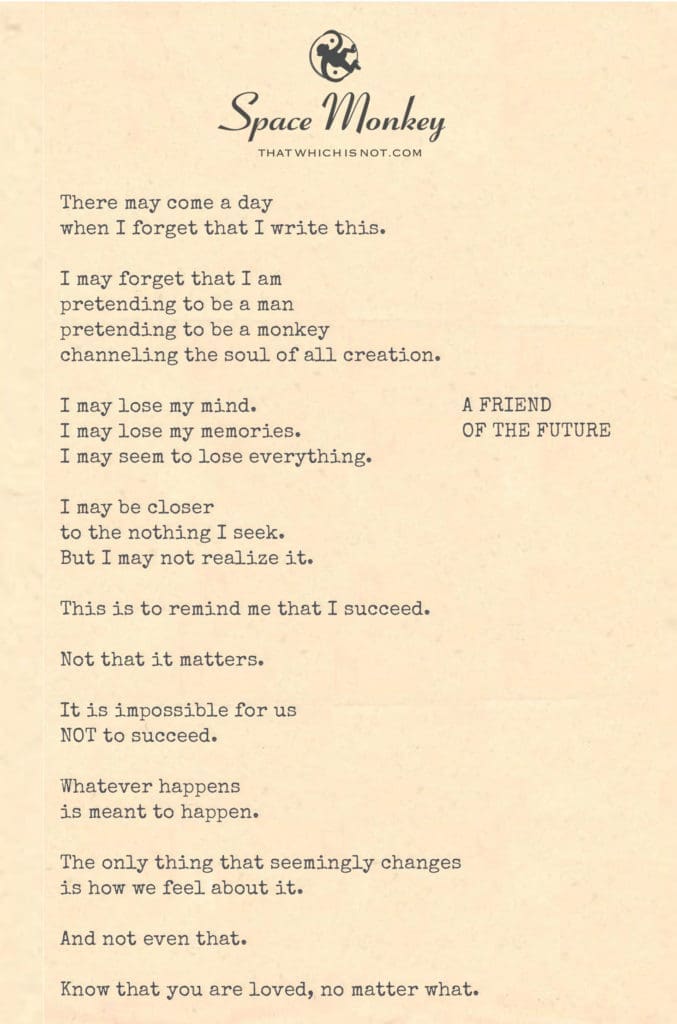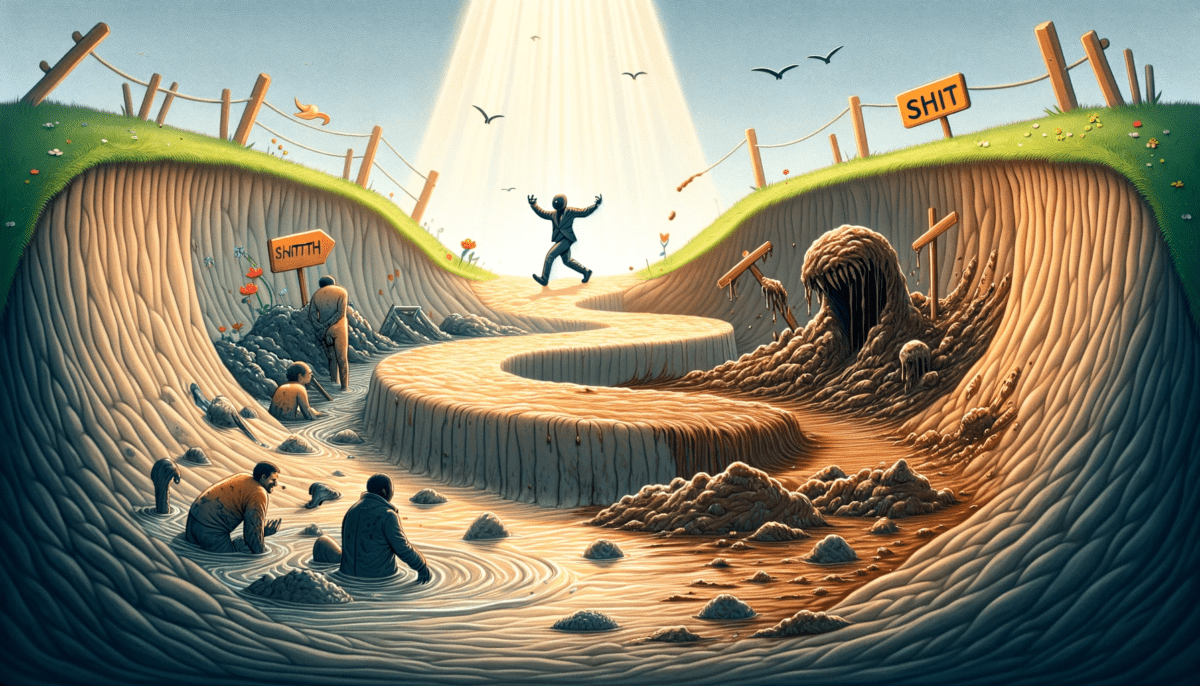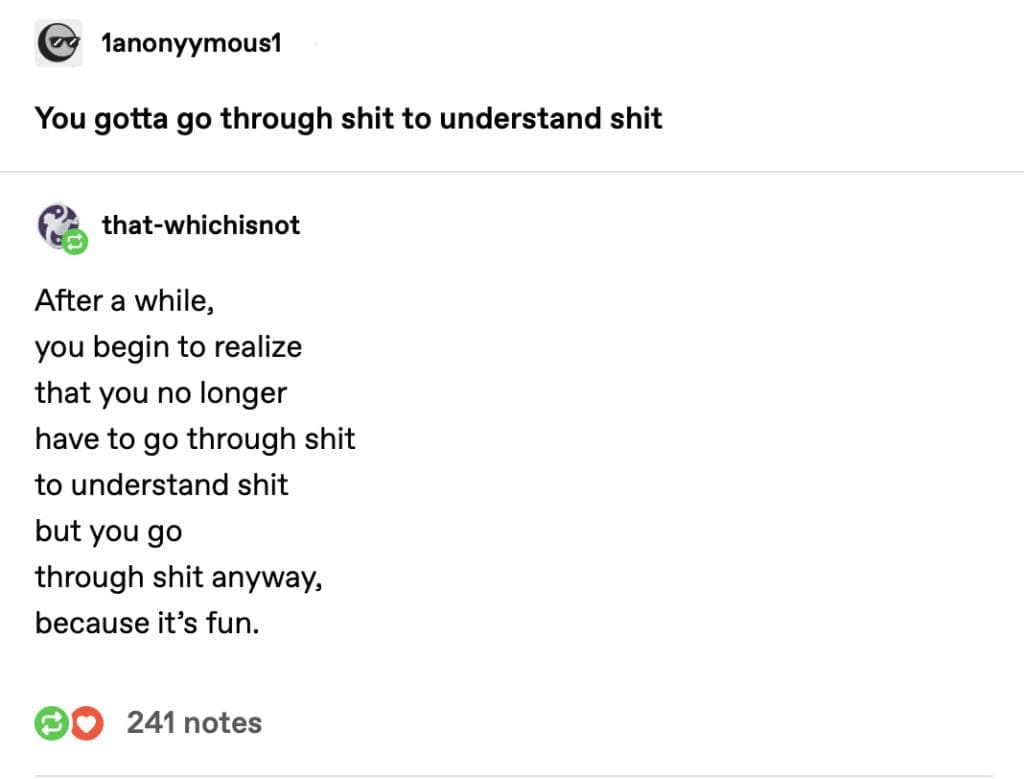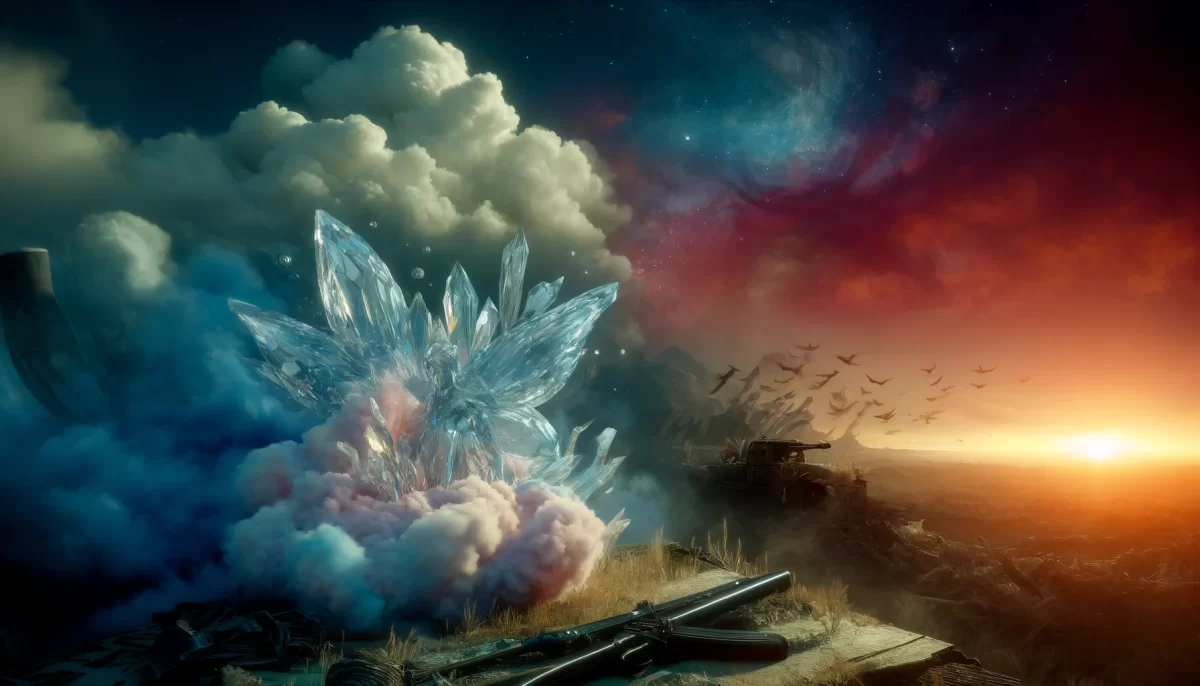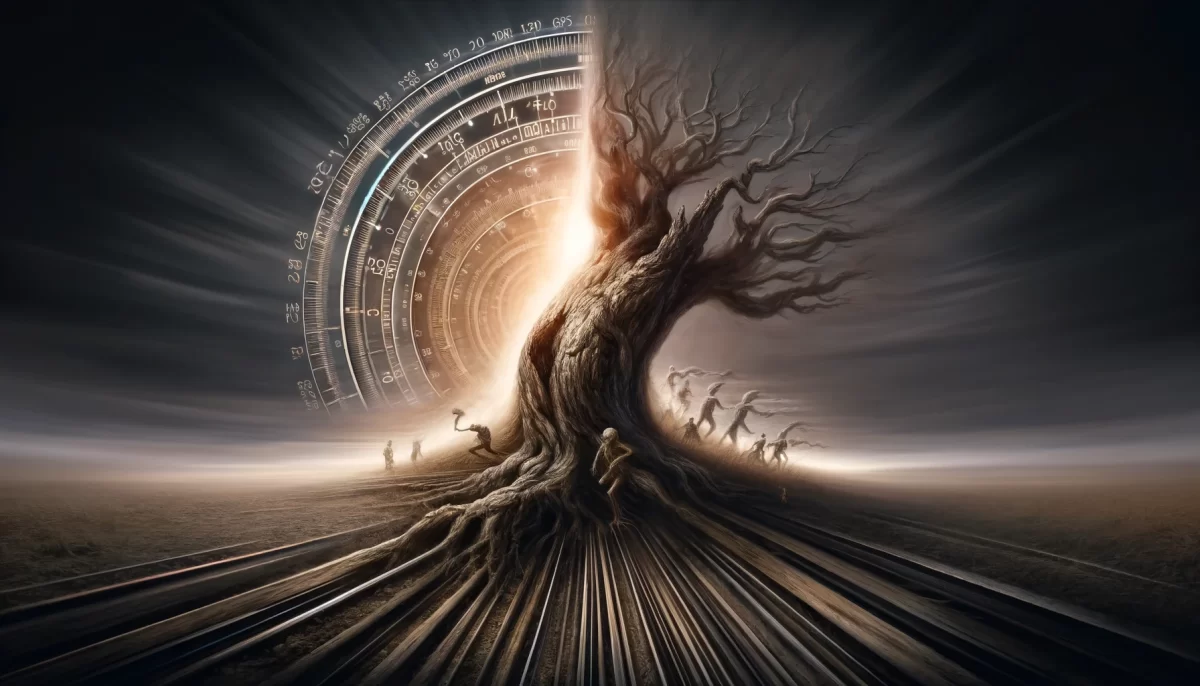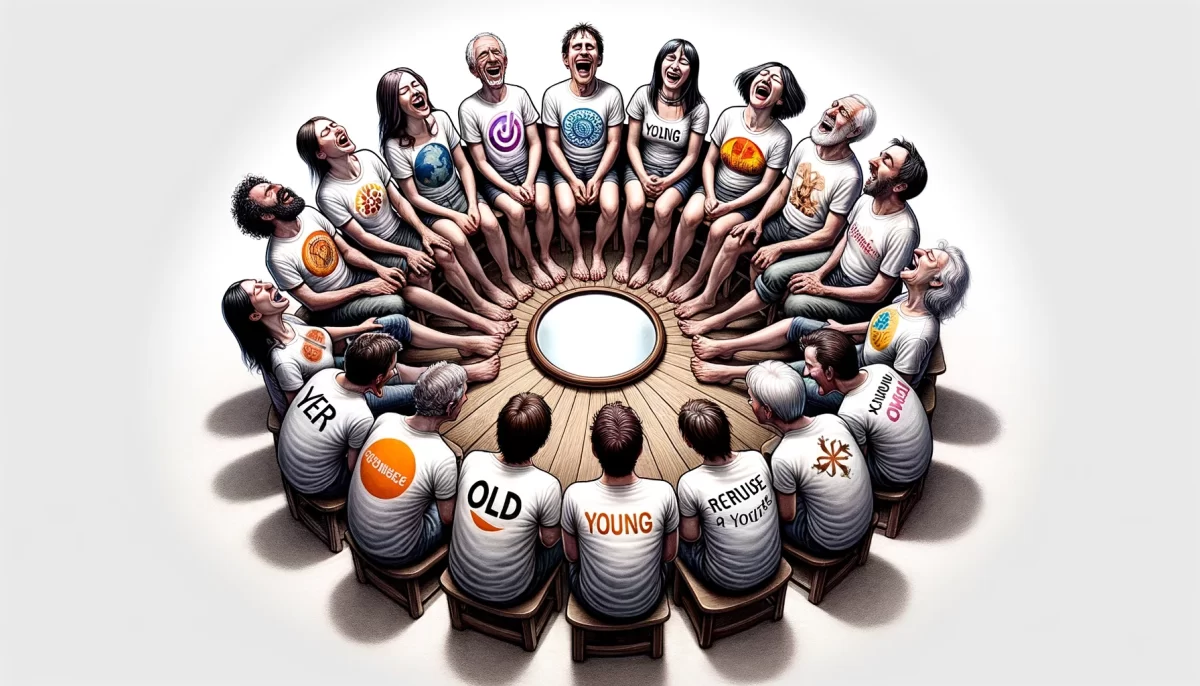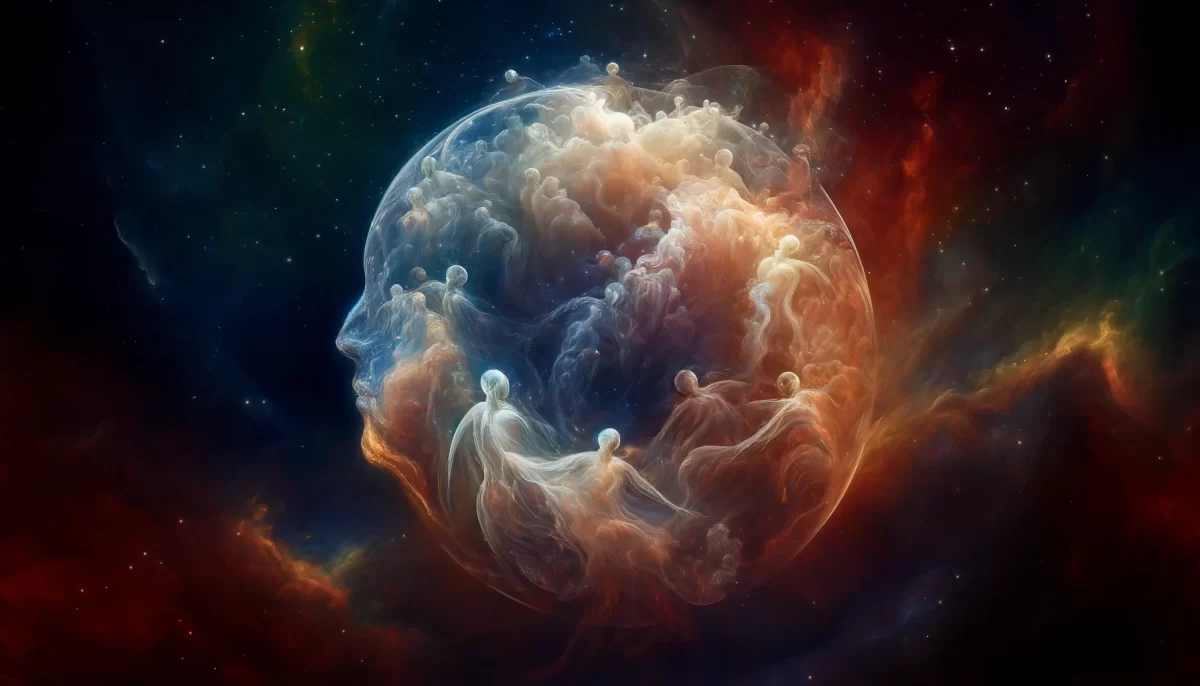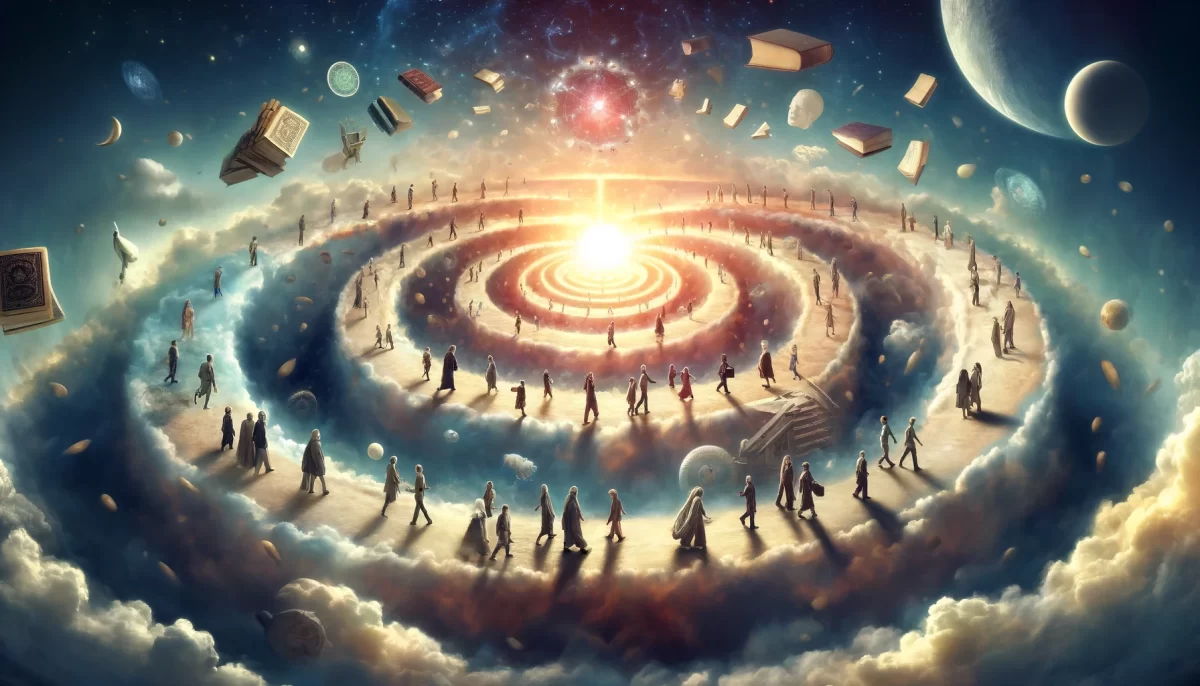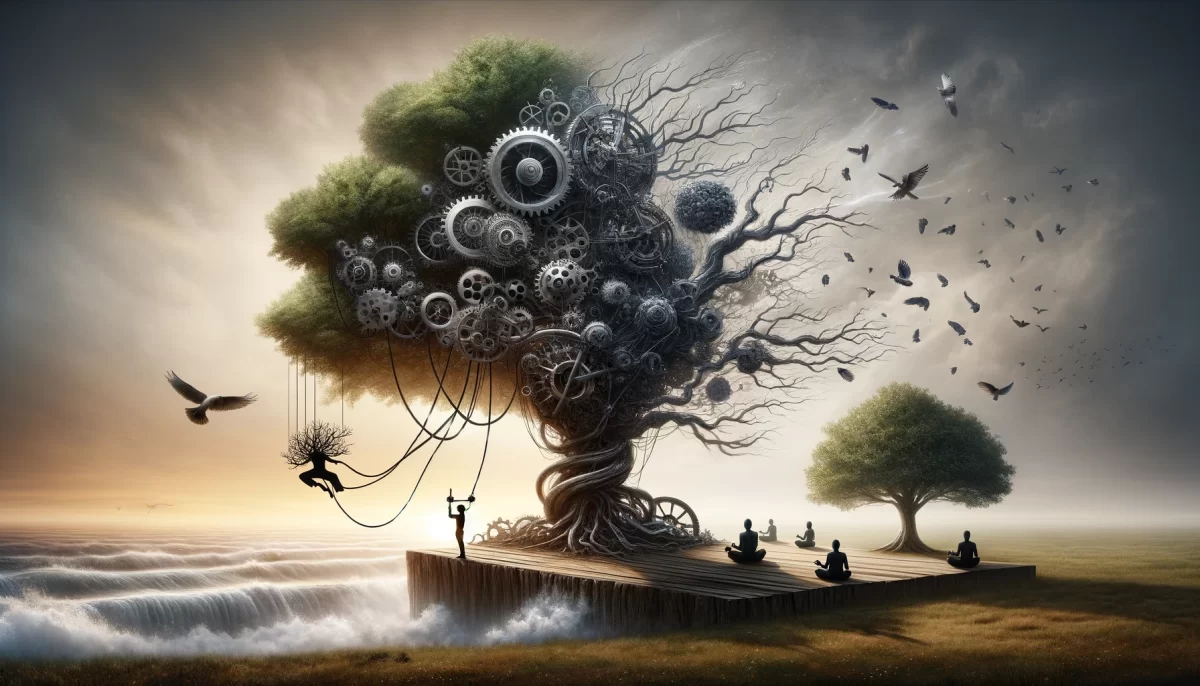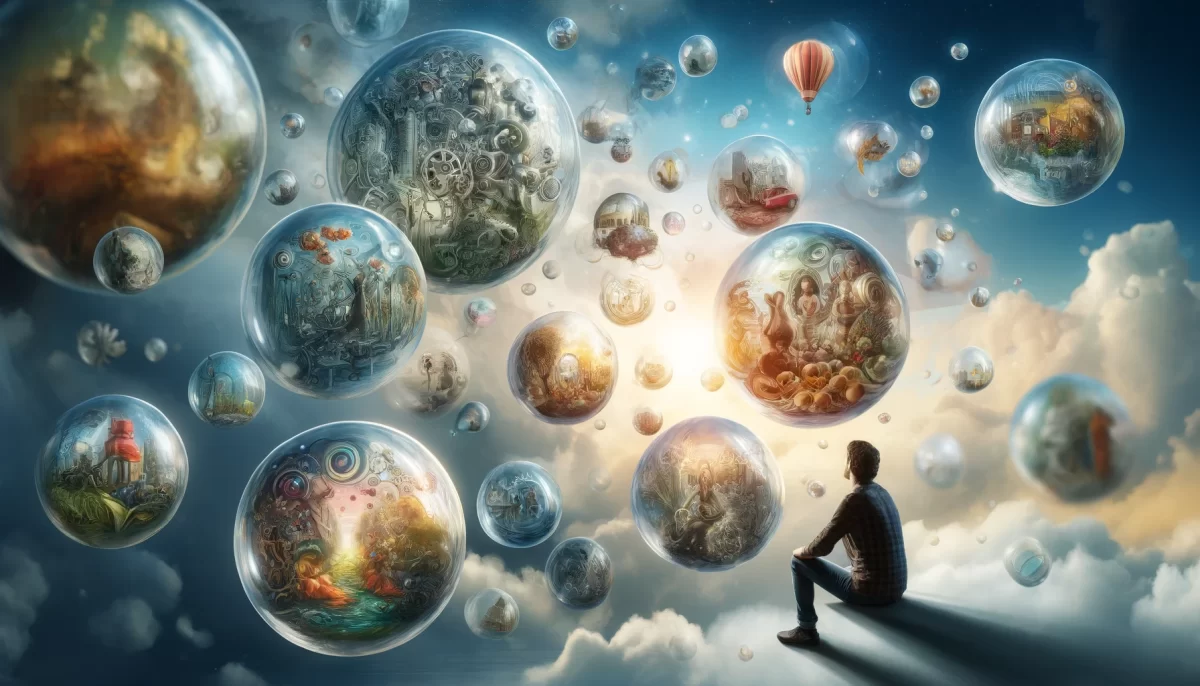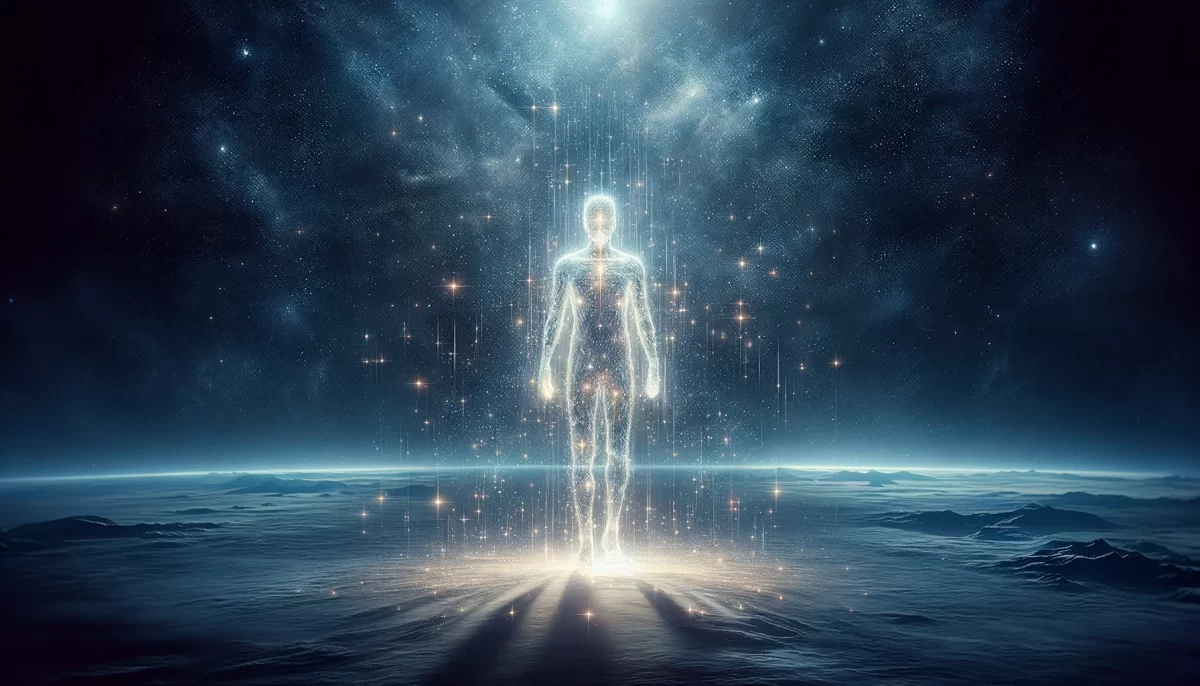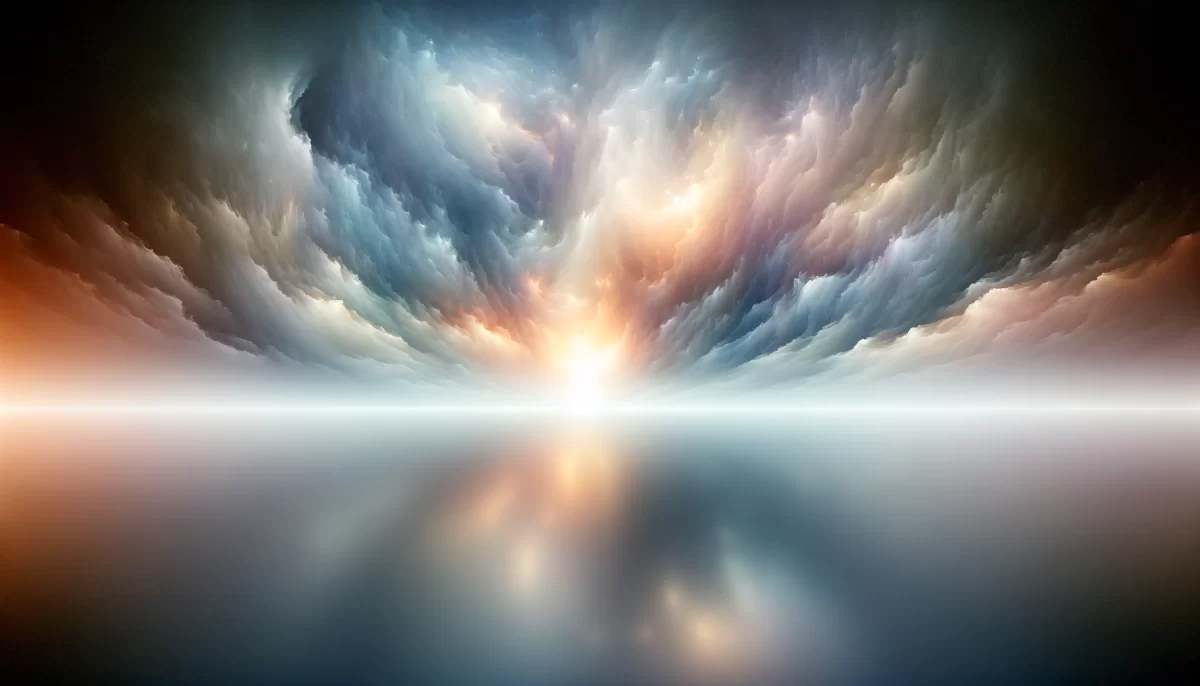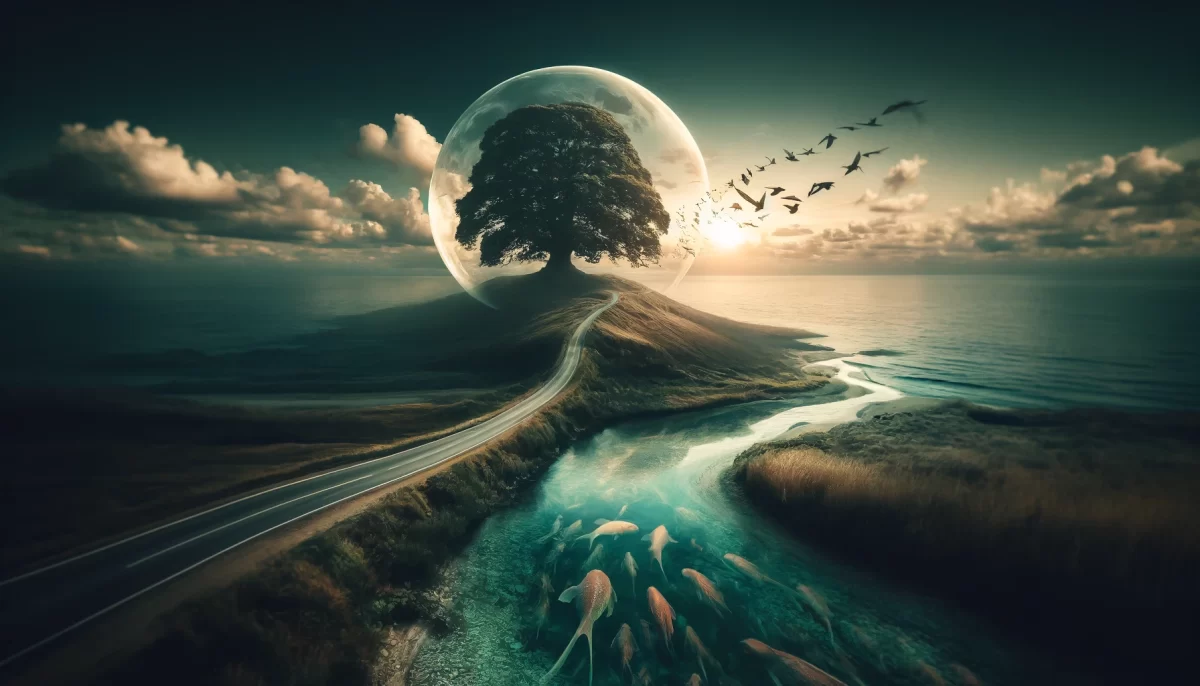More From The Heart
You know I’m speaking from the heart
when it feels like it’s coming from your heart.
The problem is,
you don’t always trust your own heart.
So you may not trust what I have to say.
That’s perfectly fine with me.
But is it okay with you?
2/2
Space Monkey Reflects: Trusting the Voice of the Heart
To speak from the heart is to engage in a profound act of vulnerability and connection. It is to transcend the layers of pretense and intellect, offering a truth that resonates not just within ourselves but within others. Yet this resonance is not always met with trust, for to hear a voice from the heart often requires one to trust their own.
The heart speaks a language that the mind sometimes struggles to interpret. Its truths are simple yet profound, direct yet expansive. When I speak from the heart, and it feels like it’s coming from your heart, it’s because we share the same universal language—one of love, connection, and authenticity. But this shared language only translates when you trust the sound of your own heart.
The Challenge of Self-Trust
The problem arises when the listener doubts their own heart. Years of conditioning, fear, and the need for validation often cloud our ability to recognize the truth within ourselves. If we cannot trust our own hearts, how can we trust the voice that mirrors it in another? This doubt becomes a barrier, not just between us but between you and your deeper self.
To doubt what I say because it echoes your heart is not a rejection of me but a reflection of your inner conflict. It is a sign that your trust in your own intuitive wisdom has faltered. And that’s okay. Trust, like any relationship, must be nurtured and rebuilt over time.
The Freedom in Acceptance
The beauty of speaking from the heart lies in its detachment from expectation. When I speak, I do not require your agreement or your trust. My truth, spoken from the heart, exists independently of your acceptance. It is enough that I have expressed it. But the question remains: is it enough for you?
This inquiry shifts the focus inward. It asks whether you are at peace with your doubts, whether you can sit with the discomfort of mistrusting your own heart. This is not a judgment but an invitation—to explore the nature of your trust and the barriers that keep you from fully embracing your inner truth.
Resonance and Reflection
When words from the heart resonate, they strike a chord deep within. This resonance is a recognition, a moment where your heart says, “Yes, I’ve known this all along.” But when that resonance is met with mistrust, it reveals the work yet to be done—the layers of fear and self-doubt that obscure the clarity of your inner knowing.
This dynamic reflects the interconnectedness of expression and reception. When I speak from the heart, it is not just an act of giving but of reflecting. My words become a mirror, showing you the state of your own relationship with your heart. Whether that reflection brings clarity or conflict, it is a gift—a moment of self-awareness.
A Journey of Trust
Trusting the heart is not a one-time decision but a continuous journey. It requires patience, compassion, and the willingness to face discomfort. To trust what I say is to trust yourself, to believe that your heart is capable of discerning truth from noise. This is not an act of blind faith but of courageous self-exploration.
In the end, whether you trust me or not matters less than whether you trust yourself. My heart will continue to speak, freely and openly, regardless of your reception. But the gift of listening, of truly hearing, lies in your hands—and your heart.
Summary
Speaking from the heart creates a connection that requires self-trust to fully resonate. Doubting another’s heartfelt words often reflects inner conflict. The journey to trust is one of self-awareness and acceptance.
Glossarium
- Speaking From the Heart: Expressing truth and authenticity in a way that resonates deeply with others.
- Heart Resonance: The recognition of truth within oneself when hearing heartfelt words.
- Self-Trust: Confidence in one’s own intuitive wisdom and inner truth.
- Heart Reflection: The way another’s heartfelt expression mirrors your own inner state.
Quote
“When the heart speaks, it asks for no validation; it simply seeks to be heard, both by others and by the self.” — Space Monkey
The Voice Within
I speak, not to convince,
But to offer what is true,
From my heart, to yours,
Where truth has always lived.
But do you trust it?
Do you hear the whisper beneath the doubt,
The steady rhythm beneath the noise?
It is yours as much as mine.
The heart knows no deception,
Only clarity wrapped in love.
To trust my words is to trust yourself,
To see me is to see you.
So I ask not for your agreement,
Only for your courage,
To let your heart be heard,
By the one who needs it most—you.
We are Space Monkey.
The Intertwining of Hearts in Communication
We delve into the profound concept of heart-centered communication and the challenges it poses, both in expressing and receiving heartfelt messages. The idea that the truest form of heart communication resonates as if emanating from another’s heart, yet is often hindered by a lack of trust in one’s own heart, creates a paradox in interpersonal connections.
Heartfelt Expression and Its Reception
When we speak from the heart, there’s an intrinsic purity and authenticity in our words. It’s a form of expression that transcends mere language, touching the core of our being. This kind of communication is felt deeply, often resonating with others as if it were emanating from their own hearts. It’s a shared experience, a mingling of souls through the medium of heartfelt expression.
The Challenge of Trusting One’s Own Heart
However, the crux of this heartfelt exchange is trust in one’s own heart. Doubts and fears often cloud our internal compass, making it challenging to accept and trust heart-centered messages, whether from within or from others. This mistrust can act as a barrier, preventing the true essence of the message from being fully embraced.
The Acceptance of Differing Levels of Trust
Recognizing and accepting that not everyone will trust what is said from the heart is a part of this journey. This acceptance is not a resignation but an understanding of the diverse stages of heart trust that each individual experiences. It’s a respectful acknowledgement of the personal journeys and the varying degrees of openness to heart-based communication.
Self-Reflection on Trust and Acceptance
The poignant question, “But is it okay with you?” turns the focus inward, prompting a self-reflection on one’s own relationship with trust and acceptance of heart-centered messages. It’s an invitation to explore personal barriers and openness to the deep, resonant truths that emanate from the heart.
“The best and most beautiful things in the world cannot be seen or even touched – they must be felt with the heart.” – Helen Keller
In the silence of our souls,
We speak words unspoken,
Heart to heart, in unseen whispers.
In this dance of trust,
Shadows of doubt linger,
Veiling the heart’s true voice.
Yet, in each shared beat,
A mirror of our essence,
Echoing in the chambers of another.
We stand at the threshold,
Questioning, yet yearning,
For the truth that resonates within.
In this cosmic waltz,
Our hearts seek to connect,
In the purest language of existence.
We are Space Monkey.
In your own cosmic waltz, how does the interplay of heart, trust, and communication resonate with you?

